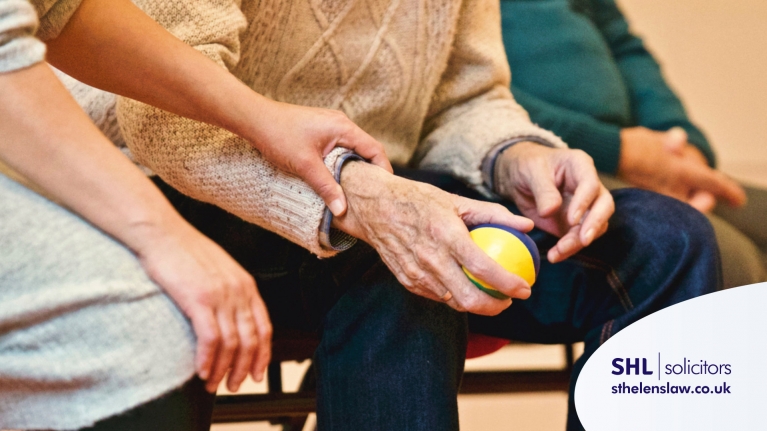At St Helens Law, our Wills, Probate and Trusts department are receiving an influx of queries looking for advice on ways to avoid their parents, or themselves, paying care home fees.
This is an area of law which is tricky, and will often depend on individual circumstances, meaning there is no simple answer for everyone. The request we hear from most people is that they want to transfer their house into their children’s names, or sell it to them for less than it’s worth. This is not as straightforward as it sounds and there are lots of considerations to make before doing this. The first thing to realise is that you would no longer own your home and what may happen is then out of your control. Your property may be affected by the divorce, bankruptcy or insolvency of any of your children, or they could then take out a mortgage and if they fail to repay this, you could potentially lose your home.
Anyone considering transferring property to their children needs to discuss this with them first and make sure they are fully aware of any possible future consequences of the Transfer both for you and your estate and also for the person that you are transferring the property to. This is because any transfer may have consequences for them personally, relating to Inheritance Tax, capital gains tax and even stamp duty, depending on their own circumstances.
In the event of you moving to a care home or to a nursing home then the local authority are entitled to call for the value of your property at that time to be taken into account when assessing the benefit that is to be paid on your behalf and they may obtain a court order for the sale of the property, depending on the circumstances. The local authority can ask the court to set a transaction (e.g. transfer of the property) aside if they can show that they believe the gift or transfer has been made to avoid nursing home fees (this is known as “deprivation of assets”). As the financial state of most local authorities worsens, they are becoming more interested in any transactions relating to property and financial gifts given by people who then go on to go into residential care.
People often tell us they have been told after 7 years the transfer no longer counts but this is a common misconception which actually applies to inheritance tax NOT care fees.
Aside from outright gifting the property to children, we are also asked all the time about transferring property into trusts to avoid care fees. We don’t actually offer these trusts (usually referred to as “asset protection trusts”) as, in practice, we do not believe they will work. Sadly, we know of a number of clients who have been elsewhere before coming to us and have paid for such a trust, sometimes to the tune of a couple of thousand pounds, and have not been given the full advice they should have had before making the decision to enter into the trust. If the motivation for transferring assets either directly to other people, or into a trust, is to avoid care home fees then this is classed as deliberate deprivation of assets. This means that the asset may still be included in the calculation which determines if someone has to pay care fees. So, even if someone has transferred a property, they may still have to pay their full fees even though they no longer own it, on paper. Or in fact your children may have to pay the care fees if they wish to keep the property in the family. Relying on asset protection trusts can be very costly in the future, as well as the initial cost of setting up something which in reality has no actual benefit.
Below is an article from the BBC website about a similar scheme, which is very informative:-
http://www.bbc.co.uk/news/business-39589083
As the article states, most of the firms offering these trusts are unregulated (and the advisers may not even be legally qualified) which means if something goes wrong you may have no one to complain to. A limited company can also go into liquidation and you may not be able to complain or get your money back if you are unsatisfied with the advice you have received. We are regulated by the Solicitors Regulation Authority, so you will always have access to redress in the event of a problem.
To be clear, no solicitor would ever advocate trying to avoid care home fees altogether, as there is no legal way to achieve that. However, there may be steps you can take to minimise your liability to care fees in the future.
One option may be to make new Wills which incorporate some asset protection. This may include leaving half of your property directly to your children on your death, with the provision that your spouse can continue to live in it and the house cannot be sold without their permission. These are proving to be very popular with our clients, and may also protect against your marital assets being bequeathed to someone else if your spouse ever went on to remarry.
At St Helens Law we offer free 30 minute consultations to discuss your requirements and our Solicitors can recommend any suitable options for you and your family. Everyone’s situation is different and unique, so please contact us to arrange an appointment to discuss your needs.
There is further advice available on the saga website (see link below)
https://www.saga.co.uk/magazine/money/personal-finance/care/how-to-avoid-care-home-fees


